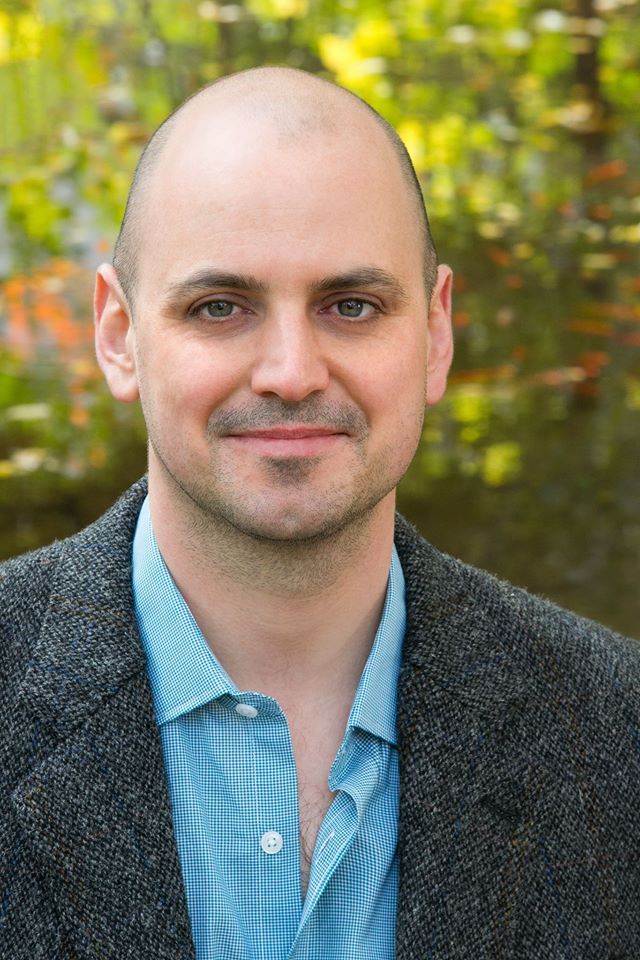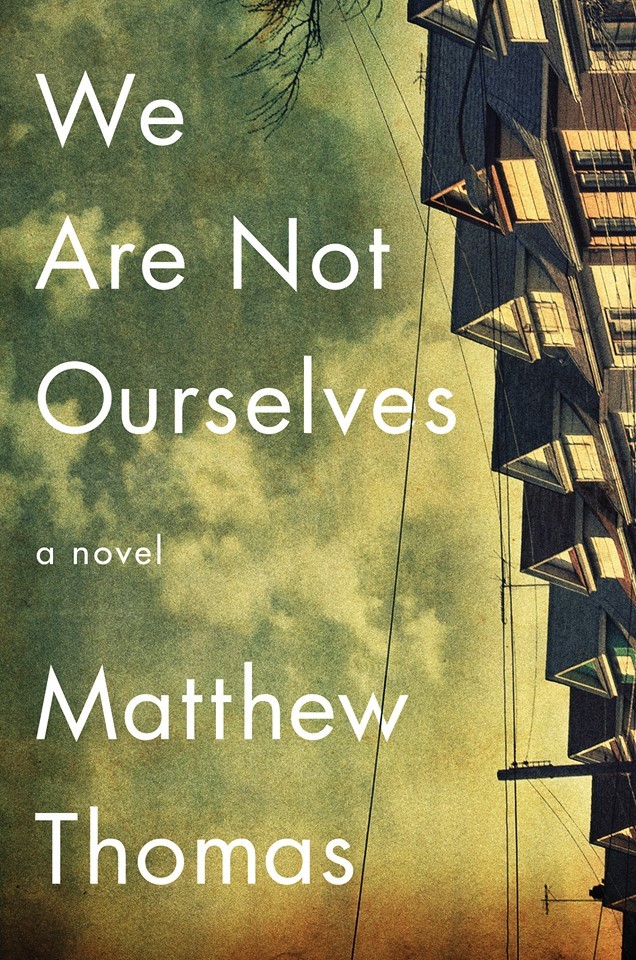Matthew Thomas’ first novel, “We Are Not Ourselves,” is an epic of small events. By that I don’t mean its story is insignificant but quotidian: the particular struggles of the day-to-day. A family saga, spanning three generations, the book is centered around Eileen Tumulty, a daughter of the Irish working-class in Queens, N.Y. Eileen’s existence is summed up in the first two syllables of that last name ― tumult ― or more accurately, in the drive to push past her limitations, which have been imposed in many ways by time and place.
 |
Matthew Thomas. (Author’s Facebook page) |
 |
“We Are Not Ourselves” by Matthew Thomas. (Simon & Schuster) |
“He worked for J.P. Morgan,” she reflects of one young man from the neighborhood, “but he was from Sunnyside, his father was a laborer like hers, and Fordham was Fordham, but it wasn’t Harvard, Princeton, or Yale.” This suggests the rigidly stratified society in which “We Are Not Ourselves” unfolds, where opportunity is not open-ended but the product of attention and resilience and (yes) a bit of grace.
Grace, however, is hard to come by, at least for Eileen. Her husband, Edmund Leary, is a research scientist who turns down promotions to continue teaching at a community college. Their son Connell, named for the author of “Mrs. Bridge,” remains curiously recalcitrant, socially awkward and increasingly distanced the older he becomes.
“(T)hey gave out no manual when you got married,” Eileen thinks, “no emergency kit with a flashlight for when the power went out. You had to feel your way around in the dark for the box of matches.” What she’s describing is the curious weightlessness of adulthood, especially the moment we realize that all our plans, our dreams, are just a form of vanity, that we have little, if any, purchase over what happens to us.
“The days and years,” she observes of Connell, “would act as a crucible in which his fate was distilled. The closing down of possibilities had begun, almost imperceptibility.”
Thomas, who grew up in Queens, clearly understands his territory; at times, “We Are Not Ourselves” reads like a family history in its evocation of New York’s outer boroughs and second-tier suburbia of the 1980s, with their mix of immigrants and culture clash. He is unafraid to portray this in all its complexity, most acutely when it comes to Eileen, who recoils at the changing face of her community.
“Watch that low-class language,” she says to Connell when he swears; meanwhile, in one of the book’s most redolent moments, she is told off by a young Latino she confronts on the street. “Hold up,” he tells her. “I’m sorry for running into you. I didn’t mean to crowd the sidewalk. Nobody’s taking over your neighborhood. I was born here. There’s room for all of us.”
Thomas continues: “His articulateness shocked her. ... The kid had been raised well, there was no denying it.” In the end, the incident is most disturbing to her not because of what it is but because of what it signifies ― “(a) vision of the future loitered in it, an intimation of her obsolescence.” The world, in other words, is changing, and Eileen recognizes that she and Ed, if not quite Connell, cannot help but be left behind.
What we’re seeing is a complex character, with competing agendas and motivations, some at levels she can’t access. This becomes increasingly pronounced after Ed starts acting strangely and is diagnosed with Alzheimer’s. His decline occupies the final two-thirds of the novel, as Eileen and Connell struggle for containment, adrift in a new house in Westchester, as alone as they have ever been.
If you’ve never experienced the slow decline of a loved one from dementia, count yourself lucky; if you have, you will recognize much of what the family undergoes. Isolated, abandoned by friends, preyed upon by a rapacious health care system, they are in a place where hope does not reside.
“She wondered for a moment,” Thomas writes, “whether, if she gave him the whole bag (of medicine) at once, he would be his old self for a few days, an afternoon, a couple of hours. ... She knew it didn’t work like that, though. His real self wasn’t hiding in there waiting to be sprung for a day of freedom. This was his real self now.”
That’s a brutal and relentless moment, an echo of the desolation that awaits us all. In its face, Eileen’s dreams ― of a grand house, social mobility, education for her son ― are revealed as if not flimsy then conditional, dependent on a string of random factors, situations she cannot control. It‘s a vividly open-ended reflection of how life works (or doesn’t), with its unexpected turns, its false promises and betrayals and divides.
“We Are Not Ourselves” is a solid first novel, unsentimental, multilayered, evocative of a lost world. At the same time, there is too much that ties up too neatly: Eileen’s mother’s alcoholism, for instance, or Connell’s difficulty completing college, not to mention the family’s finances, which go from tenuous to stable without any real consideration of what has been at stake.
“She was determined,” Thomas writes, describing the rotted-out basement and foundational wall of the family’s new home, “to let these subterranean details remain subterranean. They could be handled in due time. The issue now was preserving her vision.” The irony is clear ― but also too on the nose to be effective, as if the house, the setting, were less domicile than metaphor.
For all that, though, Eileen is tough, a survivor, and as her illusions fall away, she emerges hardened and renewed. Late in the book, after everything has happened, she attends a Mets game in honor of her husband, who was a fan. As play moves into the 13th inning, Eileen finds herself drawn in.
“It mattered so little that they’d won,” Thomas tells us, “and yet nothing mattered more.” It’s no stretch to imagine that what he’s referring to are the temporary consolations of being alive.
By David L. Ulin
(Los Angeles Times)
(MCT Information Services)









